| Selo | Gorgias Press |
|---|---|
| Edição | 0 |
| Idioma | Inglês |
| Autores | Solange Ashby |
| Acabamento | Capa Dura |
| Quantidade de Páginas | 352 |
| Origem | Literatura Estrangeira |
 Vozes femininas: Histórias de superação
Vozes femininas: Histórias de superação
Iventura
R$ 40,00 à vista A psicanálise da história: A teoria revelada dos quatro elementos
A psicanálise da história: A teoria revelada dos quatro elementos
Editora Viseu
R$ 69,90 à vista Dia D; Relatos, imagens e a imprensa panfletária
Dia D; Relatos, imagens e a imprensa panfletária
Editora Viseu
R$ 36,90 à vista A prosperidade da nação
A prosperidade da nação
Editora Viseu
R$ 36,90 à vista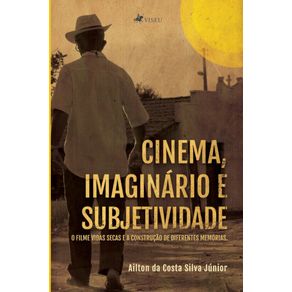 Cinema, imaginário e subjetividade: O filme vidas secas e a construção de diferentes memórias
Cinema, imaginário e subjetividade: O filme vidas secas e a construção de diferentes memórias
Editora Viseu
R$ 51,90 à vista Discrete Choice Analysis
Discrete Choice Analysis
Random House
R$ 419,64 ou até 3x sem juros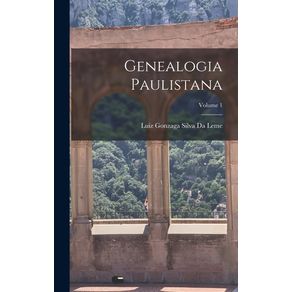 Genealogia Paulistana; Volume 1
Genealogia Paulistana; Volume 1
Legare Street Press
R$ 289,03 ou até 3x sem juros A Woman and the War
A Woman and the War
Legare Street Press
R$ 188,14 ou até 3x sem juros Kaleidoscope
Kaleidoscope
Earnshaw Books Ltd
R$ 159,88 ou até 3x sem juros Radiation Therapy for Sarcomas and Skin Cancers
Radiation Therapy for Sarcomas and Skin Cancers
Springer Nature B.V.
R$ 338,74 ou até 3x sem juros Decada quarta da Asia
Decada quarta da Asia
Legare Street Press
R$ 276,39 ou até 3x sem juros Vita del cavalier Gio. Lorenzo Bernino
Vita del cavalier Gio. Lorenzo Bernino
Legare Street Press
R$ 166,45 ou até 3x sem juros Cartas Y Relaciones De Hernan Cortés Al Emperador Carlos V...
Cartas Y Relaciones De Hernan Cortés Al Emperador Carlos V...
Legare Street Press
R$ 247,45 ou até 3x sem juros Notes on the Underground, new edition
Notes on the Underground, new edition
Random House
R$ 194,80 ou até 3x sem juros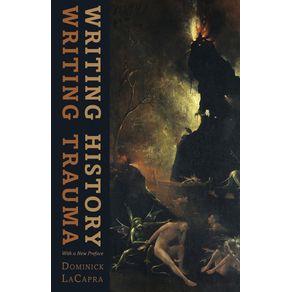 Writing History, Writing Trauma
Writing History, Writing Trauma
Hopkins Fulfillment Service
R$ 266,28 ou até 3x sem juros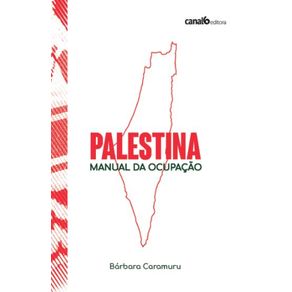 Palestina - Manual da ocupação
Palestina - Manual da ocupação
Canal 6 Editora
R$ 35,90 à vista E alguns filmes que o vento não levou
E alguns filmes que o vento não levou
Editora Viseu
R$ 98,31 à vista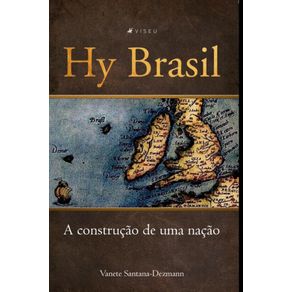 Hy Brasil: A construção de uma nação
Hy Brasil: A construção de uma nação
Editora Viseu
R$ 42,90 à vista A prosperidade da nação
A prosperidade da nação
Editora Viseu
R$ 36,90 à vista Em busca da riqueza
Em busca da riqueza
Editora Viseu
R$ 47,90 à vista Fairies, Demons, and Nature Spirits
Fairies, Demons, and Nature Spirits
Springer Nature B.V.
R$ 338,52 ou até 3x sem juros The violence of colonial photography
The violence of colonial photography
Manchester University Press (P648)
R$ 150,79 ou até 3x sem juros Charles the Great
Charles the Great
Legare Street Press
R$ 246,29 ou até 3x sem juros Radiation Therapy for Sarcomas and Skin Cancers
Radiation Therapy for Sarcomas and Skin Cancers
Springer Nature B.V.
R$ 338,74 ou até 3x sem juros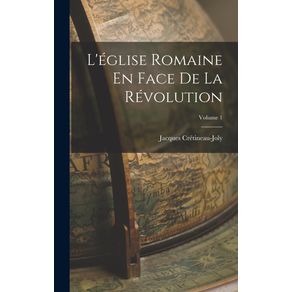 Léglise Romaine En Face De La Révolution; Volume 1
Léglise Romaine En Face De La Révolution; Volume 1
Legare Street Press
R$ 284,19 ou até 3x sem juros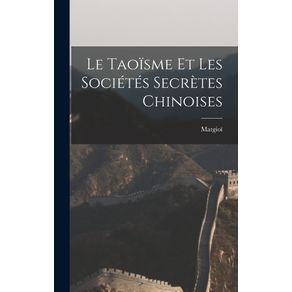 Le Taoïsme Et Les Sociétés Secrètes Chinoises
Le Taoïsme Et Les Sociétés Secrètes Chinoises
Legare Street Press
R$ 176,37 ou até 3x sem juros Cartas Y Relaciones De Hernan Cortés Al Emperador Carlos V...
Cartas Y Relaciones De Hernan Cortés Al Emperador Carlos V...
Legare Street Press
R$ 247,45 ou até 3x sem juros The Fighting Corsairs
The Fighting Corsairs
Rowman & Littlefield Publishing Group Inc
R$ 144,45 ou até 2x sem juros Cybernetics Moment
Cybernetics Moment
Hopkins Fulfillment Service
R$ 230,61 ou até 3x sem juros Venice, a Maritime Republic
Venice, a Maritime Republic
Hopkins Fulfillment Service
R$ 333,06 ou até 3x sem juros Os generais de Hitler
Os generais de Hitler
Companhia das Letras
R$ 149,90 ou até 2x sem juros Vozes femininas: Histórias de superação
Vozes femininas: Histórias de superação
Iventura
R$ 40,00 à vista Os 100 casos mais inexplicáveis da história
Os 100 casos mais inexplicáveis da história
Editora Viseu
R$ 48,90 à vista Em busca da riqueza
Em busca da riqueza
Editora Viseu
R$ 47,90 à vista The Price of Freedom
The Price of Freedom
Turner Publishing Company
R$ 163,36 ou até 3x sem juros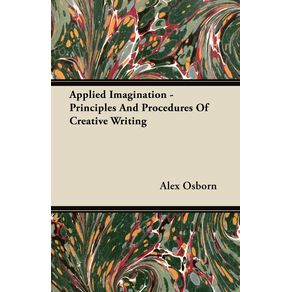 Applied Imagination - Principles and Procedures of Creative Writing
Applied Imagination - Principles and Procedures of Creative Writing
Iyer Press
R$ 294,36 ou até 3x sem juros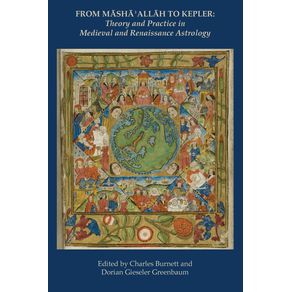 From Masha Allah to Kepler
From Masha Allah to Kepler
Sophia Centre Press
R$ 195,69 ou até 3x sem juros Genealogia Paulistana; Volume 1
Genealogia Paulistana; Volume 1
Legare Street Press
R$ 289,03 ou até 3x sem juros Kaleidoscope
Kaleidoscope
Earnshaw Books Ltd
R$ 159,88 ou até 3x sem juros As Saudades Da Terra
As Saudades Da Terra
Legare Street Press
R$ 320,98 ou até 3x sem juros Gaseous Detonation Physics and Its Universal Framework Theory
Gaseous Detonation Physics and Its Universal Framework Theory
Springer Nature B.V.
R$ 350,56 ou até 3x sem juros Léglise Romaine En Face De La Révolution; Volume 1
Léglise Romaine En Face De La Révolution; Volume 1
Legare Street Press
R$ 284,19 ou até 3x sem juros Pandectae Justinianae In Novum Ordinem Digestae...
Pandectae Justinianae In Novum Ordinem Digestae...
Legare Street Press
R$ 394,98 ou até 3x sem juros The Fighting Corsairs
The Fighting Corsairs
Rowman & Littlefield Publishing Group Inc
R$ 144,45 ou até 2x sem juros Venice, a Maritime Republic
Venice, a Maritime Republic
Hopkins Fulfillment Service
R$ 333,06 ou até 3x sem juros